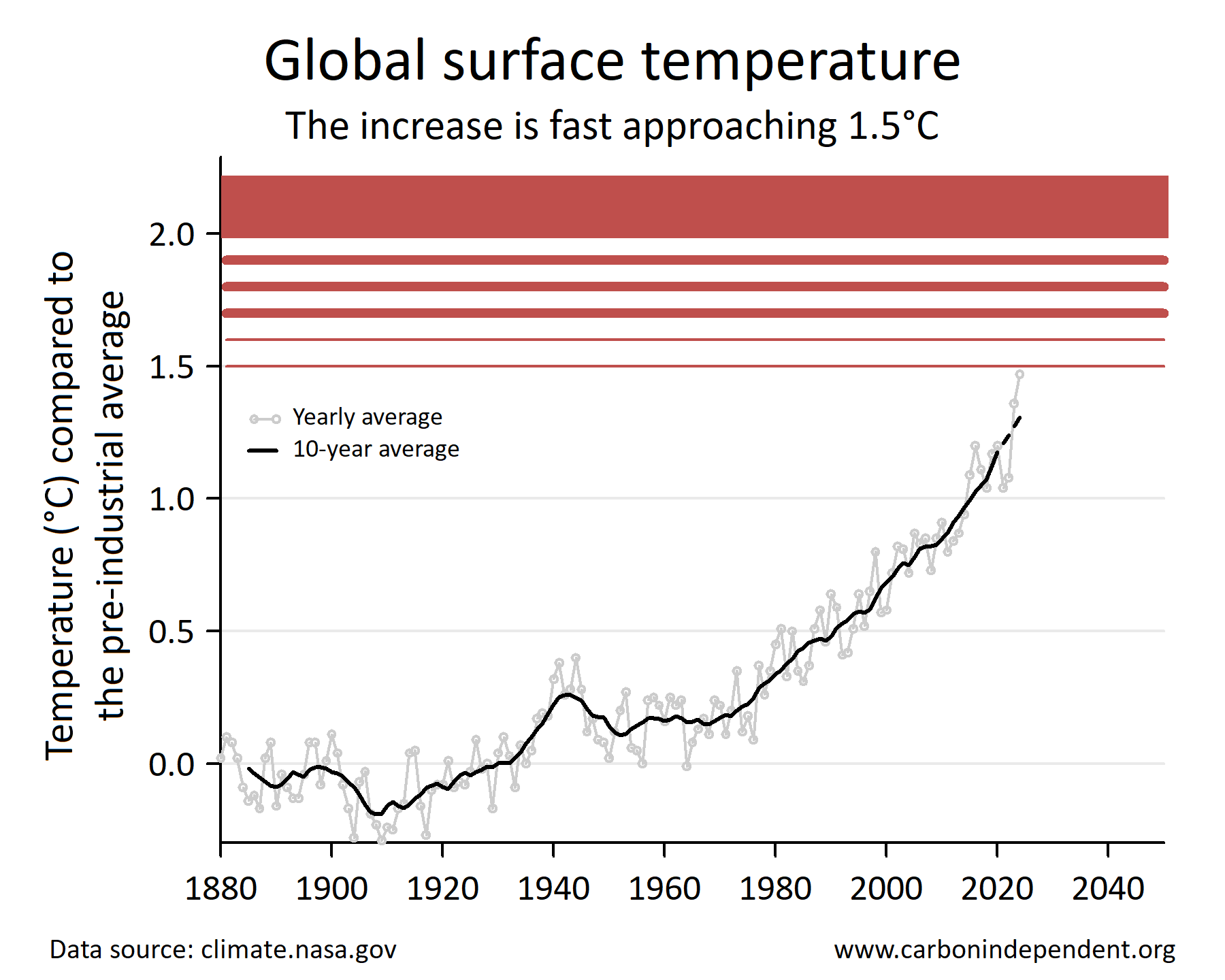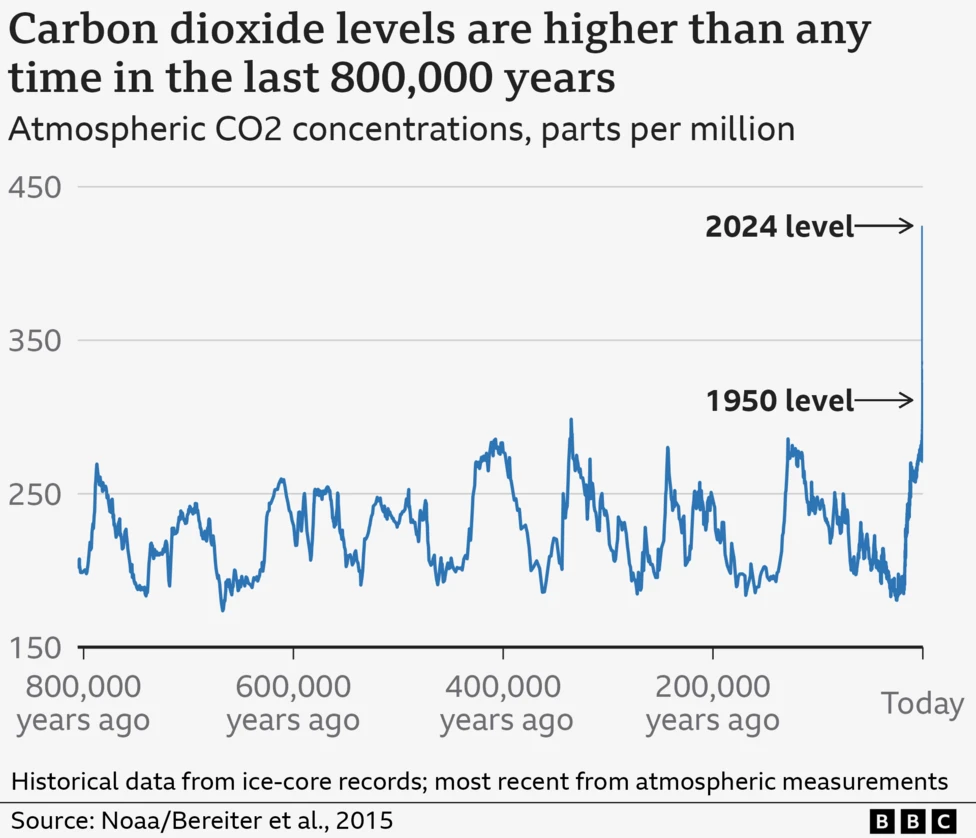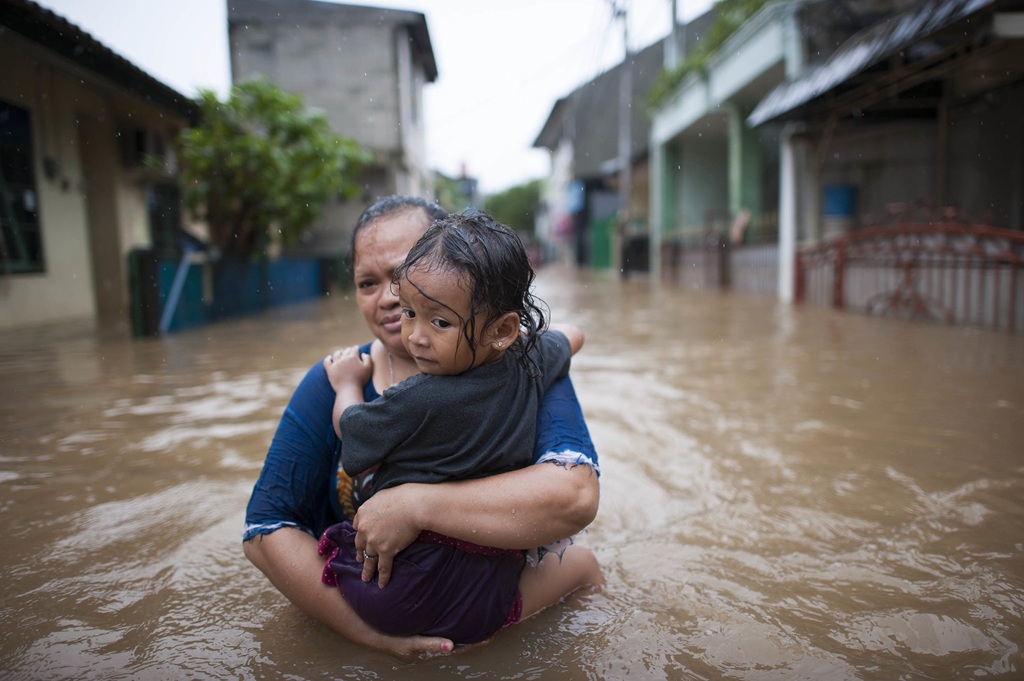
The climate emergency 2026
For more details via infoboxes: hover, click or double-click on any highlighted text

- mankind has changed the climate
- the scale of harm being done makes continued use of fossil fuels unsustainable and morally indefensible
- action on climate change has not happened as promised
- governments have not acted in line with their commitments to emergency action
- the global total of CO2 emissions has continued to rise
- the rise in global temperature is now approaching the 1.5°C limit
- extreme weather events are increasing, and the risks of catastrophic tipping points are increasing.
- the science of climate change
- the urgency of action on climate change - the rapidly dwindling carbon budgets
- what should have happened: agreement of a plan to reduce emissions in line with the climate science and the commitments given in the Paris and other agreements - and compliance with that plan
- what has gone wrong, why policy making has been so poor:
- the urgency of action has been understated, inadequate policies have been advocated - i.e. climate urgency denial - exacerbated by groupthink and other cognitive biases
- the failures have been across society: by government scientists, politicians, the media, climate campaigners, climate sceptics, businesses, the legal system, other organisations, and individuals
- climate advocacy has been fragmented and chaotic, with inconsistent policy proposals
- the options that we have now: implement organised radical change, or have disorganised radical change forced upon us by a deteriorating climate.
- face up to the seriousness of the situation
- improve decision making by having an honest discussion of the options based on the science:
- apply scientific rigour to the policy making process
- take steps to avoid wishful thinking, overconfidence, groupthink, and denial
- discuss urgent radical reduction in emissions across all sectors, consistent with the science: e.g. a rapidly increasing carbon tax, closure of most airports within months
- disseminate accurate information
- take personal action
- challenge what is out of line with the science.
1. Why climate change is such a concern
Mankind has changed the climate- average temperatures have increased, and there are more storms, floods, heatwaves and wildfires
- sea levels are rising
- the effects are cumulative and irreversible with current technology
The consequences for life on earth are severe
The harm being done includes
- climate deaths - e.g. each year's CO2 emissions from the UK will result in around 150,000 climate deaths
- climate refugees
- loss of biodiversity, e.g. coral reef blanching
- sea levels are rising and the more CO2 that is added to the atmosphere, the faster sea levels will rise.
Continued use of fossil fuels is unsustainable and morally indefensible
- One way or another, large scale use of fossil fuels will end.
Urgent radical climate action was agreed, but has not happened as promised:
- in the Paris Agreement, countries made commitments to limit global warming to well under 2°C (often taken to mean 1.7°C), and to pursue efforts to limit it to 1.5°C
- this meant rapidly ending the use of fossil fuels, halving global CO2 emissions by 2030, with faster emission cuts in developed countries
- these commitments required "rapid and far-reaching transitions"throughout society
- but governments have not acted in line with the promises given - actions have been completely at variance with the speed of change needed.
The climate has continued to deteriorate
- the global total of CO2 emissions has continued to rise
- in developed countries, emissions are not falling in line with promises made
- the global temperature rise (longer term average) reached around 1.3°C in 2024 - and at its current rate will reach 1.5°C in 2030, and 1.7°C in 2036.
- extreme weather events are increasing
- the risks of catastrophic tipping points are steadily increasing.
Governments cannot be trusted on important questions so citizens must get involved
- governments have poor records of decision making on important topics
- in the UK, there is a recurring pattern of wasting billions of pounds on ineffective policies and ignoring effective solutions
- the UN Secretary-General has warned: "Some government and business leaders are saying one thing - but doing another. Simply put, they are lying."
- despite the global temperature rise being likely to reach the Paris agreed limit of 1.5°C in 2030, governments continue to talk about Net Zero 2050 as if this is an acceptable timescale
- climate protesters who are very aware of the situation are very vocal and not deterred by long prison sentences.
Read more at carbonindependent.org/183.html
2. The key points on climate change
The science of climate change
- just over half of the CO2 added to the atmosphere by the burning of fossil fuels stays in the atmosphere
- so, since the mid-1800's, the atmospheric concentration of CO2 has steadily increased
- the CO2 in the atmosphere retains heat
- so, as more and more CO2 has been added to the atmosphere, global temperatures have steadily increased
- as well as the increased temperatures, there are more storms, floods, heatwaves and wildfires, sea levels are rising, and tipping points are nearing
- these are causing an unacceptable and unsustainable level of climate deaths, climate refugees, and biodiversity loss.
The urgency of action on climate change
- the urgency of climate action is given by the commitment in the Paris Agreement to attempt to limit global warming to 1.5°C
- the limit to global warming means a limit to how much more CO2 can be added to the atmosphere (the carbon budget)
- the global carbon budgetfor 1.5°C runs out in 2033 (possibly earlier), and even sooner in developed countries, e.g. the UK's fair carbon budget for a 50% chance of limiting global warming to 1.5°C runs out in 2027 - see document 195
- this means radical changes in lifestyles for many until renewable alternatives are developed, if temperature targets are to be met.
What should have been done by governments and wider society
There should have been agreement on a plan to rapidly eliminate fossil fuels in line with the climate science and the commitments given in the Paris and other agreements - and effective implementation of that plan.
What has actually been done
There have been many declarations of a climate emergency, but planning has been of non-emergency policies, and there has been little action. The global total of CO2 emissions, which should have been falling rapidly, has continued to increase.
What has gone wrong, why policy making has been so poor
It is crucial to understand what has gone wrong, so that mistakes are not repeated.
- there has been no general discussion of the extreme urgency from the dwindling carbon budget and the implications of radical change e.g. the closure of most airports within a few months
- instead, inadequate government timescales (such as Net Zero 2050) have dominated discussions and have been little challenged - with inadequate policies being advocated and planned
- this seems to be not just misunderstandings but a form of climate denial, termed implicatory climate denial - exacerbated by wishful thinking, groupthink, overconfidence and other cognitive biases, and pseudoscience
- there has been a general failure across society: by government scientists, politicians, the media, climate campaigners, climate sceptics, businesses, other organisations, and individuals.
What are the choices now
- current lifestyles are unsustainable, so radical change is coming one way or another - we can choose to organise radical change, or have disorganised radical change forced upon us by a deteriorating climate
- whether to continue with inadequate non-emergency policies or face up to the situation and treat climate change as the highest priority i.e. as an emergency
- whether to continue with the target of limiting global warming to 1.5°C or to accept that the system has failed and consider a higher limit of e.g. 1.6°C.
Read more at carbonindependent.org/184.html
3. Action needed
There needs to be an honest discussion of the options based on the science of climate change and the science of policy making, with the following steps.Accept that serious errors have been made concerning climate change
There needs to be an acceptance that serious errors have been made, that
- international agreements were made to limit fossil fuel use, and were made for good reasons
- wealthy countries have avoided discussing that the implications of these agreements are radical changes in lifestyles
- cuts in emissions have consequently been inadequate
- children were promised a livable planet, as were people living in precarious climates, but adults in wealthy countries have continued reckless excessive use of energy.
Correct the flawed decision making in decision makers in government, in advocacy groups, and across society
If policy decisions made since the Paris Agreement (e.g. expansion of airports, campaigns against airport expansion and for taxing private jets) are compared with decisions that should have been taken (e.g. closure of most airports), it is clear that decision making has been fundamentally flawed. Decision makers, campaigners and wider society are acting as if they are unaware of the urgency of action, despite the wide availability of the scientific basis.
Despite appearances, the squares marked A and B in the optical illusion are
actually the same shade of grey!
 Attribution: Edward H. Adelson: Checker shadow illusion
Attribution: Edward H. Adelson: Checker shadow illusionFace up to the difficult decisions on the speed of change
Facts and fairness dictate that it is emergency (not routine) action that is needed - and that the choices for the UK include a linear pathway to Net Zero 2029 for a limit of 1.5°C, or Net Zero 2034 for 1.6°C, requiring respectively 25% or 10% annual cuts in CO2 emissions.
Rational collective action across society
- discuss the very rapid reduction of fossil fuel use, including
- a massive programme of insulation, ending leisure aviation within months, much reduced vehicle mileage, and restructuring of the food supply.
- a rapidly increasing carbon tax.
- take personal action
- disseminate accurate information
- challenge what is out of line with the science: inadequate government action, misinformation and poorly thought out policy proposals.
Read more at carbonindependent.org/185.html
Started: 14 Nov 2024

 ✖
✖
